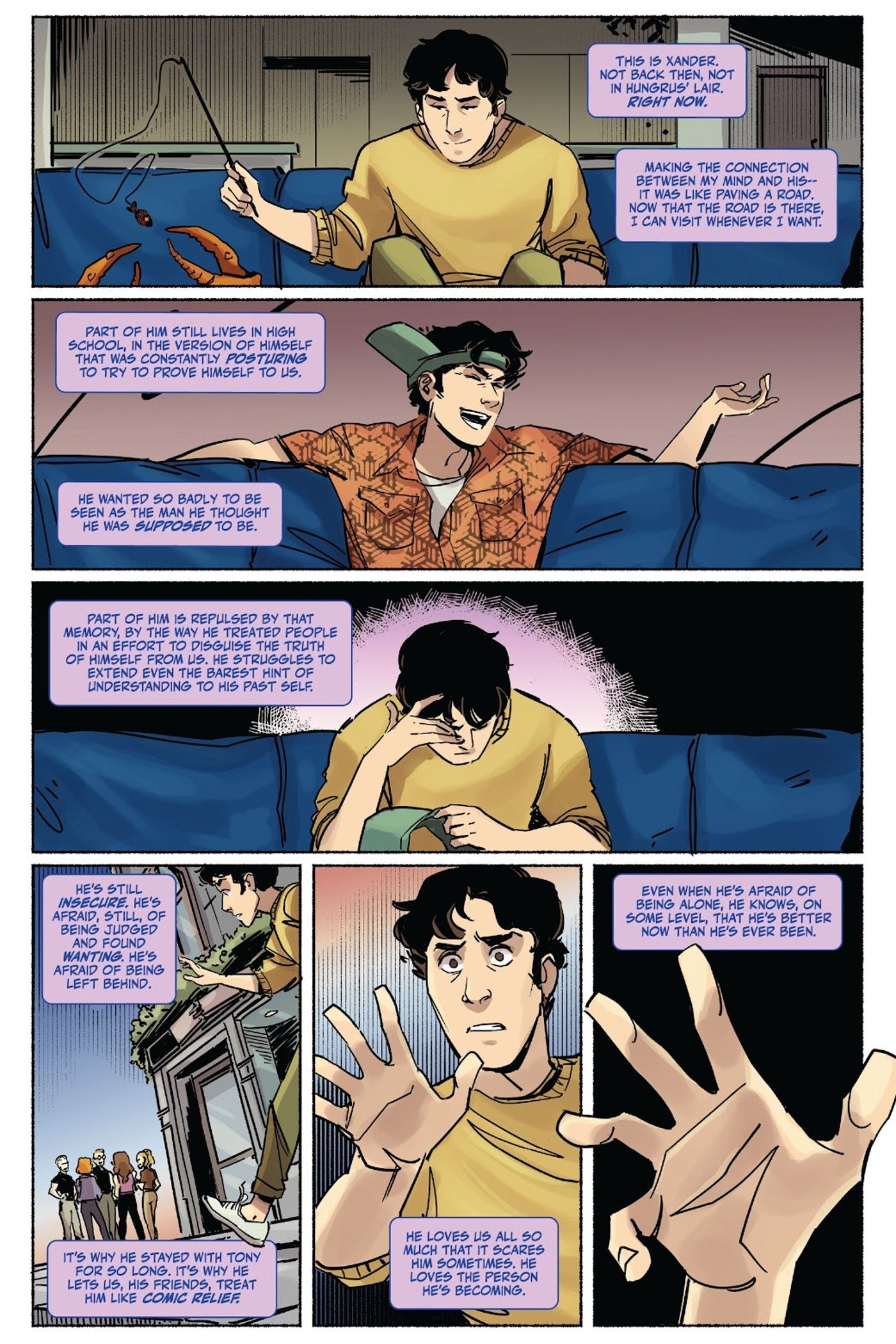Warning: Spoilers for The Vampire Slayer #11Whenever fans of Buffy the Vampire Slayer express criticisms of the show, most common criticisms lean towards the characterization of Xander Harris, but new Buffy comics are fixing many of his original flaws. Xander's depiction in early seasons especially leans hard toward him being the "nice guy" of the group who dreads and complains about being friend zoned by the object of his affection, which in early seasons was Buffy herself. This was a fairly common trope in media back in the '90s, but audiences reflect on it with modern eyes with a sort of ire. In Xander's case, his personality is often pegged as being sexist, toxic, or at best, paints him as the equivalent of a modern-day incel.
In acknowledging these criticisms, more recent interpretations of Buffy's material have attempted to either make tweaks to the Xander character or to re-contextualize him entirely for the modern age. For instance, BOOM! Studios' run of Buffy rebrands Xander as a vampire. He starts off as the usual Xander most fans have come to know, the best friend who's unsure of his place in the world. However, complexities to his character emerge when he's turned into a vampire by Drusilla. From there, he becomes the series' new Big Bad and that universe's equivalent to The Master.
Xander On The Original Buffy Show Was The Worst
BOOM! Studios' current ongoing series The Vampire Slayer takes an alternate approach. Rather than completely reboot Xander's character, the series embraces it in a way by contextualizing his worst character traits as someone who he used to be. In The Vampire Slayer #11 by Sarah Gailey and Hannah Templer, Willow explains that Xander used to always try to prove himself to everyone around him, basically describing his characterization from the show. Most interestingly, Willow mentions just how "repulsed" Xander is by the memories of who he used to be and how he treated people to hide his own insecurities.
This is an interesting turn, as it paints Xander much more like a real person. Yes, for this world at least, it still canonizes the cringey aspects of his character from the show, but everyone looks back at their past with a little bit of cringe. It's hard for the average person to look at their actions - specifically their mistakes - from adolescence and not be repulsed. It modernizes the same intentions that likely were afoot when Xander was characterized the way he was on the show: to be relatable.
Much of that young male teen audience probably related to Xander during the '90s version of Buffy, but characterizing him now as someone who cringes hard every time he even remembers something he did or said five or 10 years ago is something that all readers today can relate to. Perhaps even those young men in the '90s who grew up idolizing Xander have since grown up and can recognize his character flaws. On top of its many themes, Buffy the Vampire Slayer was always about growth and depicting Xander in a way that builds upon who he used to be rather than erasing it speaks to the core of the original show.
The Vampire Slayer #11 is on sale now from BOOM! Studios.


